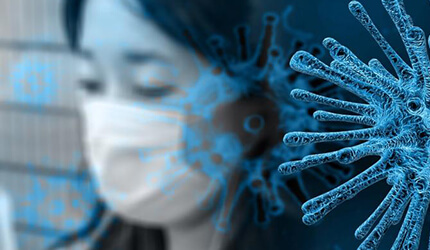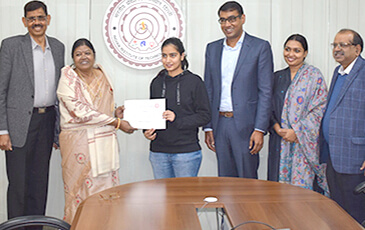Publish Date: 22th March 2020
Advisory note on Corona Virus
Share this on

Symptoms and Preventive Measures
Basic protective measures against the new Corona virus
Wuhan Corona Virus- WHO Advice for public
How is the virus transmitted?
The WHO reports that human-to-human transmission is occurring with a preliminary R0 estimate of 1.4-2.5.
(In epidemiology Ro denotes the average number of secondary cases of. an infectious disease that one case would generate in a completely. susceptible population)Current estimates of the incubation period of the virus range from 2–10 days, but more information about the mode of transmission is needed to confirm this. Experts are also still unclear whether transmission can occur from asymptomatic individuals or during the incubation period.
Advise for Public
Basic protective measures against the new coronavirus
- Wash your hands frequently
- Wash your hands frequently with an alcohol-based hand rub or soap and water. Why? Washing your hands with an alcohol-based hand rub or soap and water kills the virus if it is on your hands
Practice respiratory hygiene
- When coughing and sneezing, cover mouth and nose with flexed elbow or tissue – discard tissue immediately into a closed bin and clean your hands with alcohol-based hand rub or soap and water. Why? Covering your mouth and nose when coughing and sneezing prevent the spread of germs and viruses. If you sneeze or cough into your hands, you may contaminate objects or people that you touch.
Maintain social distancing
- Maintain at least 1 metre (3 feet) distance between yourself and other people, particularly those who are coughing, sneezing and have a fever. Why? When someone who is infected with a respiratory disease, like 2019-nCoV, coughs or sneezes they project small droplets containing the virus. If you are too close, you can breathe in the virus.
Avoid touching eyes, nose and mouth
- Why? Hands touch many surfaces which can be contaminated with the virus. If you touch your eyes, nose or mouth with your contaminated hands, you can transfer the virus from the surface to yourself.
- If you have fever, cough and difficulty breathing, seek medical care early. Tell your health care provider if you have traveled in an area in China where 2019-nCoV has been reported, or if you have been in close contact with someone with who has traveled from China and has respiratory symptoms. Why? Whenever you have fever, cough and difficulty breathing it’s important to seek medical attention promptly as this may be due to a respiratory infection or other serious condition. Respiratory symptoms with fever can have a range of causes, and depending on your personal travel history and circumstances, 2019-nCoV could be one of them.
If you have mild respiratory symptoms and no travel history to or within China
- If you have mild respiratory symptoms and no travel history to or within China, carefully practice basic respiratory and hand hygiene and stay home until you are recovered, if possible.
- As a general precaution, practice general hygiene measures when visiting live animal markets, wet markets or animal product markets
Symptoms and Preventive Measures
Symptoms of Corona Virus
- Runny nose
- Headache
- Cough
- Sore throat
- Fever
- General feeling of being unwell
- Shortness of breath
Precautions to be taken to prevent spread of infection
- Frequently wash your hands (atleast for 20 sec thoroughly) with soap and running water and alcohol based hand rub after coughing and sneezing or when caring for the sick or when in contact with patient of cough and cold or in public gathering.
- Cover your mouth and nose when sneezing and coughing with flexed elbow or tissue and throw the tissue into closed dustbin immediately after use.
- Avoid close contact and stay home when you are experiencing cough and fever and also avoid contact with anyone who has fever or cough or maintain distance of 3 feet (1 metre) from the patient.
- Avoid spiting in public and touching eyes, nose and mouth with unwashed hands.
- Avoid direct, unprotected contact with live animals.
- Avoid unnecessary travel aboard especially to countries like Italy, Iran, China, Malaysia, Japan, South Korea and Singapore.
- Seek early medical help if you have fever, cough and difficulty in breathing and share previous travel history with your health care provider.
- The infection is spread by droplets organisms (size more than 5 micron) therefore, ordinary surgical mask can also give adequate protection.
- Mask is not required to be worn by all, only those with respiratory symptoms (coughing, sneezing and fever) need to use it to protect others from getting virus. Dispose used mask properly.
- Mortality rate as reported in data from China.
1 Age 80+ 15% 2 Age 70 to 79 8% 3 Age 60 to 69 4% 4 Below 60 1% 5 Overall Mortality 2% to 3%



